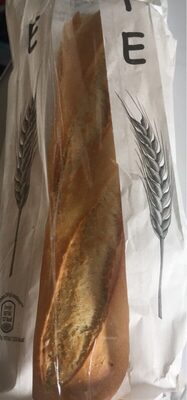
Barcode: 26032702
Baguette
HALAL
📝 Reason: No Haram or doubtful ingredients appear in the listed ingredients for this baguette. All major components are plant-based or, in the case of milk and ascorbic acid, widely accepted as Halal by Islamic authorities (Quran 2:168, 5:3). There are no ECodes identified as Haram (e.g., E120, E124) or Doubtful, per the provided lists and global Halal databases. No meat, alcohol, or byproducts that would warrant extra scrutiny are present (IFANCA, www.foodchemadditives.com).
🏷️ Category: Plant Based Foods And Beverages, Plant Based Foods, Cereals And Potatoes, Breads, Baguettes
📄 Certificates: Vegetarisch
Ingredients:
Details
Understanding the Halal Status of Baguette
When it comes to dietary choices, many people are seeking to ensure that their food adheres to Halal principles. One common item that often raises questions is the Baguette. So, let’s explore the intriguing details of the Baguette’s Halal status, the ingredients used, and how they align with Halal dietary practices.
What Makes Baguette Halal?
The Baguette is Halal based on its ingredient list and preparation processes. Halal guidelines dictate that food must not contain any Haram (forbidden) substances. In the case of the Baguette, its ingredients are comprised of plant-based components:
- Wheat flour
- Water
- Yeast
- Salt
- Malted wheat flour
- Fava bean flour
- Antioxidant: ascorbic acid
- May contain traces of milk
- May contain traces of sesame
As per the guidelines from Islamic authorities, none of the ingredients are Haram or questionable. The consideration of traces of milk and sesame is also taken into account, as they are generally accepted in Halal food if not processed with Haram substances.
Ingredient Breakdown of Baguette
1. Wheat Flour
Wheat flour is a fundamental ingredient in many baking processes. It is completely plant-based and poses no Halal issues.
2. Water
Plain water is universally recognized as Halal, as it is a natural and clean resource. Therefore, its inclusion poses no concern.
3. Yeast
Microbial yeast is essential for the rising process in bread. Unless produced from haram sources, which is not the case here, yeast is generally Halal. You can read more on this here.
4. Salt
Salt is completely permissive in Halal diets. It’s a mineral that does not conflict with Halal principles.
5. Malted Wheat Flour
This is made from sprouted wheat grains and is of plant origin. Thus, it is considered Halal, and you can find more details here.
6. Fava Bean Flour
Fava bean flour, produced from ground fava beans, is another plant-based ingredient that is completely Halal, with no associated issues. More information can be found here.
7. Antioxidant: Ascorbic Acid
Ascorbic acid, also known as Vitamin C, is often derived from plant sources. Generally accepted as Halal, more detailed information can be found here.
8. Traces of Milk
While incidental traces of milk can be a concern, they are Halal if free from non-Halal additives. The presence of traces is usually negligible and not a reason for alarm.
9. Traces of Sesame
Since sesame is a plant seed, it is naturally Halal. Thus, any incidental presence poses no compliance issues.
Conclusion
The Baguette is categorized within Plant-Based Foods and Beverages, Cereals and Potatoes, and Breads. The absence of any Haram ingredients and the plant-based nature of its primary components ensure that it is suitable for Halal consumption. Moreover, it has obtained a vegetarian certification, further affirming its Halal status.
For those concerned about their dietary choices, enjoying a Baguette offers peace of mind, knowing that it adheres to Halal standards. Make sure to check the ingredients if you are purchasing from different brands, but rest assured, the standard Baguette is a delightful and Halal-friendly option!
